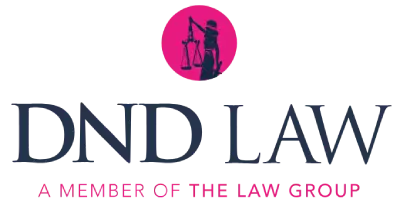Here’s a step-by-step guide:
1. Choose a Company Structure
You need to decide on the type of company you want to form. The most Company Formation structures in Northern Ireland are:
• Private Limited Company (Ltd): Separate legal entity; liability limited
to shares.
• Public Limited Company (PLC): Can sell shares to the public, requires
more capital.
• Limited Liability Partnership (LLP): Partnership with limited liability
for members.
• Sole Trader: Simplest form, no distinction between personal and business
assets.
• Community Interest Company (CIC): For non-profit or social enterprises.
For most small to medium businesses, a Private Limited Company is common.
2. Choose a Company Name
• Ensure the name is unique and not already in use by another company.
• It must end with “Limited” or “Ltd” (for a limited company).
• You cannot use offensive or sensitive words without approval.
• Check name availability using the Companies House online service.
3. Register an Address
Your Company Formation must have a registered office in Northern Ireland. This can be your home, an office, or a registered agent’s address. The address will be publicly available.
4. Appoint Directors
• A private limited company needs at least one director (who must be 16 years or older).
• Directors are legally responsible for the company.
• You can also appoint a company secretary, but it’s not mandatory.
5. Allocate Shareholders and Shares
• Decide who the shareholders are and how much of the company each shareholder owns (shareholding structure).
• Issue a minimum of one share per shareholder.
6. Prepare Legal Documents
• Memorandum of Association: A document signed by all initial shareholders agreeing to form the company.
• Articles of Association: Rules governing the management of the company. Companies House provides a model set of articles, or you can draft your own.
7. Register the Company with Companies House
You can register the company online or by post:
• Online registration: Costs £12, and the company is usually registered within 24 hours.
• Postal registration: Costs £40 and takes 8–10 days.
For either, you’ll need to provide:
• Company name
• Registered address
• Details of directors and shareholders
• Share structure
• SIC code (to describe your company’s business activity)
You can register online through the Companies House portal.
8. Register for Corporation Tax
Once registered with Companies House, you must register with HM Revenue & Customs (HMRC) for Corporation Tax. This must be done within three months of starting business activity. You can do this online via the HMRC website.
9. Open a Business Bank Account
• You’ll need a business bank account to separate personal and business finances.
• Most banks will require your Companies House registration number and proof of identity.
10. Register for VAT (if applicable)
If your company’s turnover is expected to exceed £85,000 per year, you must register for VAT. You can voluntarily register for VAT even if your turnover is below this threshold.
If you are looking for Solicitors Newry, Please click here
11. Comply with Ongoing Legal Obligations
• File Annual Accounts: Every year, you need to file accounts with Companies House.
• Confirmation Statement: You must confirm that your company information is up to date at least once every 12 months.
• Corporation Tax Returns: File annual tax returns and pay any Corporation Tax due to HMRC.
12. Register for Other Taxes (if required)
Depending on the nature of your business, you may also need to register for other taxes, such as:
• PAYE (Pay As You Earn): If you have employees.
• National Insurance Contributions: For both yourself as a director and any employees.
13. Consider Additional Requirements
• Business Insurance: Certain types of insurance, like employer’s
liability insurance, may be mandatory.
• Licensing: If your business activities require licenses (e.g., alcohol sales, entertainment, etc.), you’ll need to apply for them.
By following these steps, you can successfully form a company in Northern Ireland. Make sure you remain compliant with all regulatory obligations post-incorporation to avoid penalties.
Kevin Neary BCL TEP Solicitor ( NI RoI and England/Wales) Notary Public
Office: +442830264611
Mobile: +447775648511
Fax : +442830267000
Email: kevinneary@dndlaw.com
Address: 1Downshire Road, Newry , CountyDown

